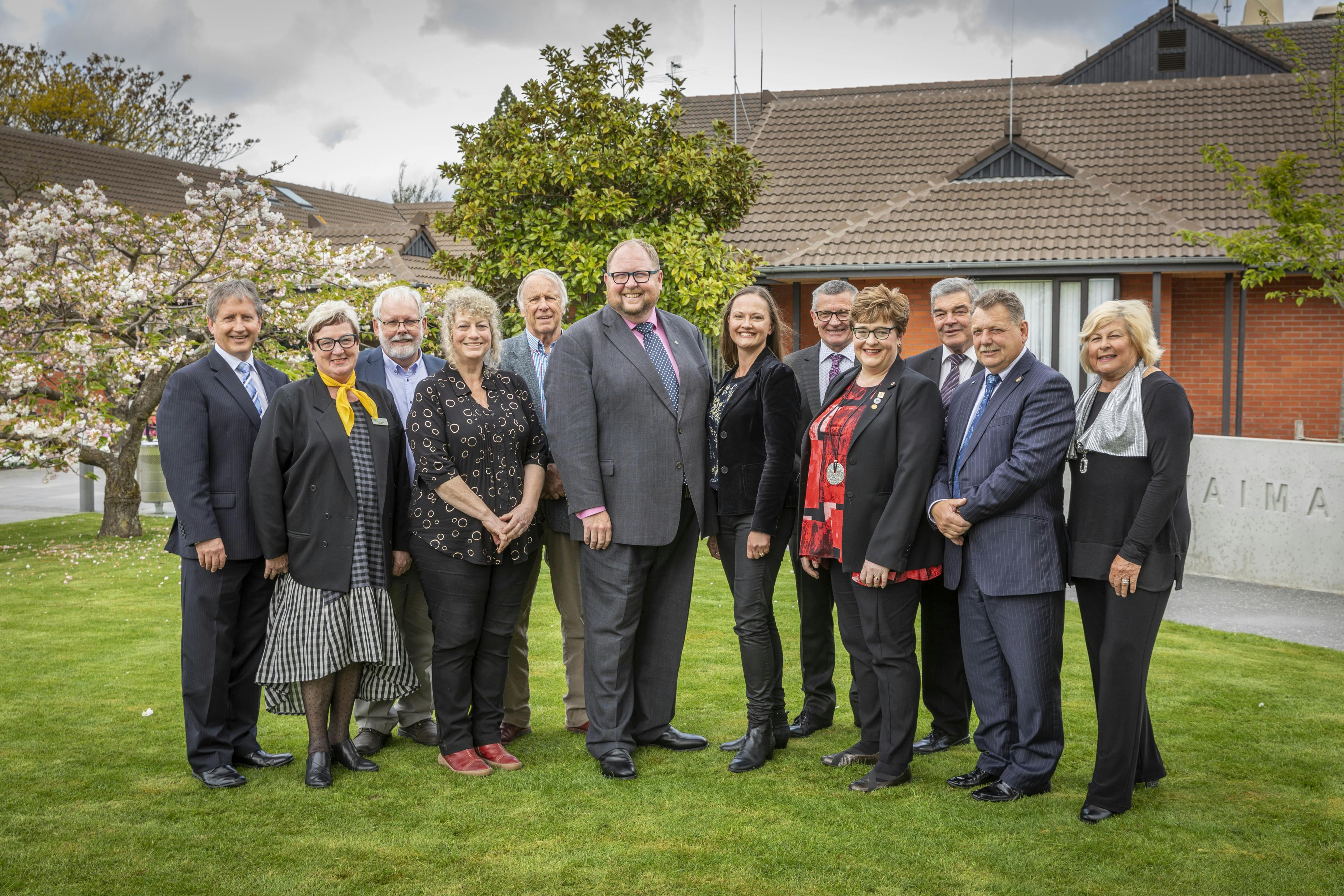Share Community Feedback on Facebook
Share Community Feedback on Linkedin
Email Community Feedback link
This consultation is now closed. Thank you for sharing your thoughts about the Government’s proposals to change the way the three waters services (drinking water, stormwater and wastewater) are provided across the country.
You can find out more about the feedback received in this interactive dashboard.
Share Memorandum of Understanding on Facebook
Share Memorandum of Understanding on Linkedin
Email Memorandum of Understanding link
The Council, along with all councils nationwide, signed a Memorandum of Understanding (MOU) with the Government in August 2020, committing to the first stage of the Three Waters Reform programme.
This stated that we were willing to explore different ways of delivering water services. However, signing the MOU did not commit the Council to anything beyond stage one, or to opt-in to the reform process.
In return, the Council received an $8 million share of a stimulus package which was used to upgrade water and wastewater services across the District.
Share Key Considerations for Waimakariri on Facebook
Share Key Considerations for Waimakariri on Linkedin
Email Key Considerations for Waimakariri link
We understand the importance of exploring alternatives to make sure three waters services are delivered in the best way possible, which is why we took part in the first stage of the reform.
Local Government changes The Government is undertaking Three Waters Reforms ahead of, and in isolation of, the Resource Management Act (RMA) Reform and the Future for Local Government Review.
There is an opportunity for the Government to coordinate these proposals given they are interrelated and will have an intergenerational impact.
Ratepayer equity Over the last 20 years we’ve invested over $100m in water infrastructure and it is of a very high standard. The Government’s current proposal doesn’t consider compensation for three waters in areas where there has been appropriate investment.
Efficiencies There would be some efficiencies from economies of scale, but the evidence provided by the Government regarding the level of efficiencies the new entities will achieve is limited.
Councils have already incorporated a number of improvements that would lead to efficiency gains, and New Zealand’s geography and population density would limit the benefits expected - which have been based on overseas models.
Cost We have recently released our Long Term Plan, which models our projection of rates to 2051. Three waters rates are proposed on average to decrease moderately over time, when inflation is excluded.
Our projections do not support those figures being proposed by the Government. We have laid out the difference in these projections on the following page.
Given the data we’ve seen so far, we’re not convinced the proposed entity could provide three waters services to Waimakariri residents at a lower rate than what we currently offer.
Growth Waimakariri District is a high growth area. Our Council has a good record of matching servicing and infrastructure delivery with zoning land for development, as well as coordination with roading, green spaces and three waters services.
Having a separate three waters entity may lead to a lack of coordination and funding prioritisation. We have benefited from growth allowing costs to be spread over a larger number of ratepayers, to ensure rates remain as affordable as possible.
Connection with the local community Currently, ratepayers have a direct link through elected members who are available to hear community views. The proposed reform could result in less connection to local decision makers and mean our community has less of a say in how three waters services are provided.
Responding to natural hazards As recent weather events have shown, our District can be prone to flooding. Our Council has a solid track record of preparing for and quickly responding to these events to minimise the impact on our community.
A large entity could lack the proximity and agility to respond quickly to local issues during such events.
Timing The eight week timeframe for the councils to make an informed decision on such a significant change is very short. It is difficult to give this important issue the level of scrutiny, analysis, and engagement with the community that it deserves.
What we are presenting is the best information we currently know.
Share The Government's Objectives on Facebook
Share The Government's Objectives on Linkedin
Email The Government's Objectives link

-
Affordability – in some areas it’s becoming unaffordable for councils, especially for smaller councils with fewer ratepayers, to provide safe and reliable drinking water, and fit for purpose wastewater and stormwater services.
-
Service level consistency – with many councils providing three water services, some communities receive a different level of service to others. The reform aims to provide a more consistent level of service across the country.
-
Underinvestment in critical infrastructure - through stage one of the reform process, the Government concluded that there is underinvestment in three waters infrastructure across parts of the country. There may be large costs over the next 30 years as infrastructure is brought up to standard.
-
Inability to meet requirements - with both a new water regulator and new economic regulator, there is a concern councils may not be able to meet future requirements without the reform process.
-
Climate change - increased flooding and sea level rise will put pressure on three waters services if not adequately managed. The Government is concerned about the ability of councils to meet this challenge without reform.
More information is available on the Department of Internal Affairs website - dia.govt.nz/Three-Waters-Reform-Programme
Share What are the Options? on Facebook
Share What are the Options? on Linkedin
Email What are the Options? link
There is the possibility that even if the Council opts out of the reform, the Government may decide to pass legislation that removes these services from local councils by law. While this is a possibility, we still think it is important to hear the views of our community before making a decision.
Your choices
Opt-in
If Council decides to opt-in to the reform process, it means that by 1 July 2024, three waters services would be removed from the Council and would be provided by a new three waters entity covering the majority of the South Island.
The Council would receive a one-off payment of $22 million as a support package for the transfer of three waters assets.
Opt-out
If Council decides to opt-out of the reform process, provision of three waters services would remain with the Council. How this fits in with the Government direction if it still proceeds with the national reforms is yet to be determined.
Click on the survey tab to let us know your thoughts.










